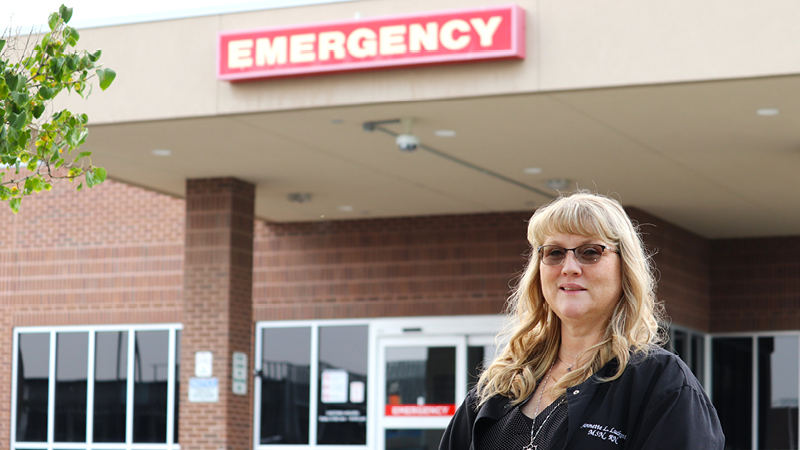
Annette Luckett, MSN RN, is the Injury Prevention Specialist for St. Peter's Health. With more than 30 years of nursing experience, Luckett's background includes working in the ICU, Cardiac Stepdown, Mental Health, Ambulatory Care, Medical/Surgical, and Case Management.
September 23, 2024
September is Fall Prevention Month, a time dedicated to raising awareness about the dangers of falls and the steps we can all take to stay safe. Preventing falls isn’t just about being cautious—it's also about protecting our health and independence. In July 2024, St. Peter's Health Emergency Room treated 101 trauma cases, with 74 including falls. Falling is a serious business, especially since 95% of all hip fractures are caused by falls.
What is a fall?
A fall happens when someone loses their balance, leading to an unintentional change in position. This can happen while standing, sitting, or even when trying to get up from a lying position. Near-falls are essential warning signs when you almost fall but manage to catch yourself. Paying attention to these near-falls can help you prevent an actual fall in the future.
Why do falls happen?
Falls can happen for many reasons, and as we age, our bodies undergo many changes. Some might be due to health issues, while others might be because of medications that make you dizzy or unsteady. That’s why it's important to talk to your doctor and pharmacist every year about your medicines and any health concerns you have. They can help you identify any risks that might lead to a fall and suggest a way to prevent one.
How to prevent falls
- Stay Active: As we age, we may lose some strength and balance, making falls more likely. Staying active can help you stay strong, improve your balance, and maintain your coordination and flexibility. Activities like walking, water exercises, tai chi, and chair exercises are great for building strength safely. If you’re worried about falling while exercising, talk to your doctor. They might suggest working with a physical therapist who can create a plan that’s just right for you.
- Get Your Eyes Checked: Your eyesight plays a big role in preventing falls. Make sure to have an eye exam every year to catch any changes in your vision that might put you at risk.
- Review Your Medications: Some medicines can make you feel dizzy or lightheaded, which could lead to a fall. Have your doctor or pharmacist review your medications to see if any might increase your fall risk.
- Work with a Physical Therapist: A physical therapist can assess your physical needs and recommend exercises to help you stay strong and balanced.
- Work with an Occupational Therapist: An occupational therapist can evaluate your home to identify hazards that could cause you to fall and suggest ways to make it safer.
Stay on Your Feet
By following these tips, you can significantly reduce your risk of falling. Staying active, getting regular check-ups, and being aware of potential hazards in your home are simple yet powerful steps to keep you safe, healthy, and on your feet. Fall prevention is more than avoiding accidents – it’s about maintaining independence and enjoying life to the fullest.
For more tips on fall prevention, visit the St. Peter’s Health Fall Prevention webpage.
You can also check out the Center for Disease Control’s “Check for Safety” home fall prevention checklist, which provides practical tips for making your home safer.
